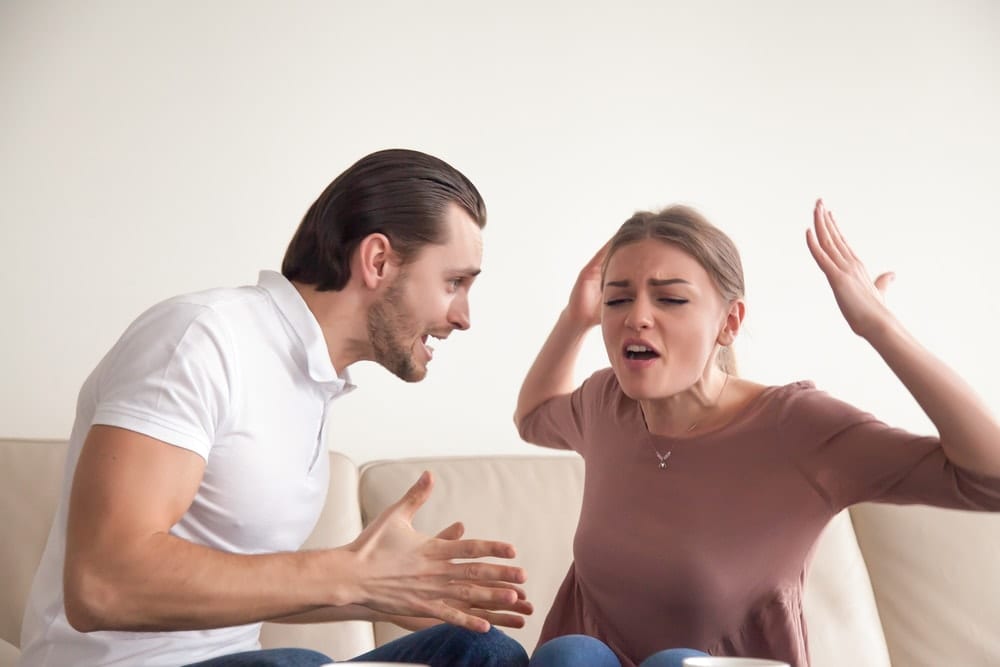
Recognizing the Signs of Domestic Abuse
When you think about domestic abuse, you likely consider physical abuse first and foremost. Contrary to popular belief, domestic violence doesn’t solely involve bodily harm. Domestic abuse often begins far more subtly and subliminally. Even if your spouse or partner never lays their hands on you, you can still be a victim of domestic abuse. Psychological abuse is just as much a part of domestic violence as getting punched or kicked and often has long-lasting effects on the victim. These manipulations are why victims stay within the relationship.
Many people are learning about the signs of domestic abuse so that more victims will get recognized and receive the help they need. Those in abusive relationships are often reluctant to speak the truth for fear of retaliation, embarrassment, or to protect their reputation. They might deny red flags when questioned, so it’s important to recognize the non-verbal signals before a situation goes from bad to worse.
Types of Abuse in a Relationship
Before understanding the signs of abuse, it’s vital to discern the different types of damage that exist. These include:
- Physical – Any kind of punching, slapping, hitting, or any physical encounters are signs of abuse. This also involves breaking someone’s personal items, punching holes in walls, and restraining someone.
- Emotional – This is usually in combination with physical abuse, although it can stand alone. This includes name calling, isolating someone from family and friends, and gaslighting.
- Financial – One person often takes control of the other’s finances. This encompasses seizing their checks (from work, benefits, taxes, etc.), restraining the use of bank accounts, and pirating their credit and debit cards.
- Sexual – Rape and sexual abuse are still that, even within a marriage. This type of injustice includes any forced activity.
For the most part, these relationships contain all of the abuses listed above. Damages of this nature aren’t limited to romantic partners. It happens between parents and children, coworkers, and roommates.
Recognizing Abuse When It’s Happening
Much abuse is so subtle that it is hard to accept, even from within the relationship. Frequently, this behavior seems normal or is easily explained. That’s why it’s important for everyone to see the signs before the situation gets worse, or at least have the ability to distinguish when someone else is in a terrible position and requires assistance.
- Bruising, scarring, unexplained injuries – To avoid having to give out explanations, someone facing physical threats at home may create the image that they are clumsy and get injured often. Look for fingerprint marks, scratches, and signs of human damage. For example, someone who is merely accident-prone might have physical marks in weird places. Someone in an abusive situation may have their nose repeatedly broken, or bruises under their eyes, signifying intentional harm.
- Sudden anxiety, or personality changes – If your relationship makes you anxious, scared, or forces you to alter your regular personality, there’s likely emotional abuse at hand. Friends who begin dating and rapidly change their character might do so because they’re afraid of their partner. Sudden mood changes, anxiousness in public places, or continuously communicating with their boyfriend/girlfriend while out with friends are all signs that there’s something seriously wrong.
- Verbal abuse, insults, shaming – This is a part of psychological damage. Bullies find that belittling their victim gives them greater control. Words hurt people, and this tactic is often used to undermine a partner’s confidence, which contributes to them staying in a bad situation.
- Isolation – When someone faces separation from their loved ones, it alters the way they think. It’s a common sign that’s usually ignored. When individuals “disappear” into a relationship and avoid their friends and family, it is considered a typical trait. It isn’t. A healthy relationship encourages each person to have friends and a support system that they frequently communicate with. An abusive relationship limits your outside contact so that the abuser can easily control their victim.
If you or someone you know is in this situation, the best thing to do is contact the authorities and get legal help as soon as possible. A lawyer can make sure that the abusive party is held liable for the damage they’ve caused and can protect the victim through court documents.
Finding an Injunction Lawyer for Domestic Abuse
At Fighter Law, we understand that deciding to file an injunction against an abusive partner is a big decision. When you’re ready to file an injunction, it’s essential to obtain an injunction attorney you trust. Our team of injunction lawyers in Orlando has decades of combined experience handling hundreds of cases just like yours. We have the compassion and the know-how to make this process as painless as possible for you. Call 407-344-4837 or fill out a case evaluation form and take the first step to free yourself from domestic abuse.
Share:
free case evaluation
Fill out the form below for an free evaluation of your case.
Categories
- Birth Injury
- Boating Accidents
- Car Accidents
- Civil Rights
- Criminal Defense
- Cyberstalking
- Divorce
- Dog Bite Injury
- Domestic Abuse Charges
- Domestic Violence
- Drug Charges
- DUI Charges
- Family Law
- Felonies
- Fighter Law Firm
- Firearms
- Firm News
- Guardianship
- Injunction Removal
- Injunctions
- Marketing
- Personal Injury
- Repeat Violence Injunction
- Restraining Order
- Seal and Expunge
- Self Defense
- Sex Crimes
- Slip and Fall
- Stalking Injunction
- Theft and Robbery
- Theme Park Trespasses
- Traffic tickets
- Uncategorized
- Wills and Trusts

